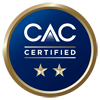At KTC, sustainability is deeply embedded in the Company’s business operations and integrated across every stage of the value chain. KTC is committed to aligning strategic initiatives with stakeholders’ interests while adhering to global sustainability standards, including the United Nations Sustainable Development Goals (UN SDGs). This commitment underscores the Company’s dedication to fostering long-term value creation, addressing key environmental, social, and governance challenges, and driving sustainable growth that benefits all stakeholders.
Sustainable Development Goals (SDGs)
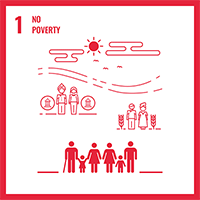

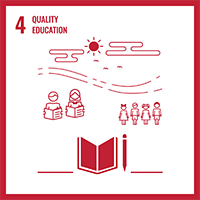
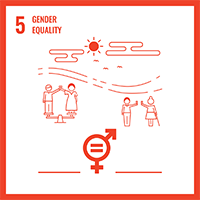
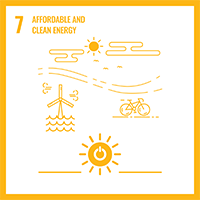
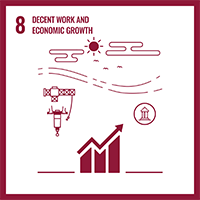
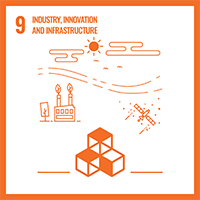
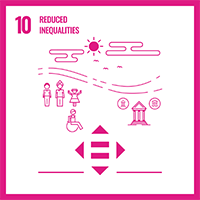
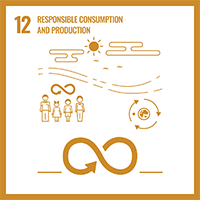
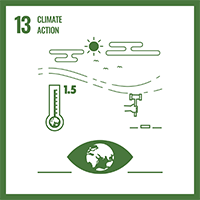
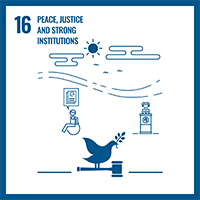
Sustainability Development Structure
Board of Directors
- Approve the operational framework, policies, mission, and vision to maximize benefits for the company and its stakeholders
- Delegate responsibilities, oversee, and monitor the organization’s sustainability performance
- Ensure that the company complies with applicable laws, corporate regulations, and resolutions adopted by the shareholders’ meeting
- Appointing the Audit, Corporate Governance, and Sustainability Committee to oversee the sustainability development implementation
Audit, Corporate Governance, and Sustainability Committee
- Oversee, monitor, and provide guidance on the organization’s sustainability development
- Approve and endorse key sustainability material topics to address the needs of the company and its stakeholders.
- Review and approve sustainability performance results prior to their disclosure in the company’s sustainability report on a biannual basis
President & Chief Executive Officer
- Steer the organization toward sustainable growth by embedding its commitment to sustainability within strategic direction and business operations
- Provide oversight, monitor progress, and drive the attainment of established sustainability targets and performance indicators
Management & Sustainability Committee
- Establishes sustainability policies and operational guidelines that cover Environmental, Social, and Governance (ESG) aspects and integrates them into the core business strategy
- Reviews and approves new products and strategies, taking into consideration various risks and ESG impacts
- Appoints working groups or sub-committees to study sustainability issues and drive concrete implementation
- Support the execution of sustainability initiatives, including the allocation of resources in alignment with the company’s strategic objectives and operational plans
Management
- Establishes the department’s strategies, operational plans, and performance indicators to ensure alignment with the company’s sustainability strategy, including the continuous monitoring of implementation outcomes.
- Guiding the Sustainability Working Group, and ensuring integration of efforts to manage sustainability-related impacts and achieve sustainability metrics that were set forth by the Company
Sustainability Working Group
- The Sustainability Working Group comprises representatives from all departments to foster collaborative efforts in driving sustainability initiatives
- Ensuring effective performance and monitoring of sustainability metrics
- Responsible for studying national and international sustainability-related frameworks, facilitating cross-department discussions, and enhancing internal communications to raise awareness and understanding of sustainability
- Promote and support sustainability awareness, communication, and culture within the department.
Employees
- Acknowledge, fully understand, and be prepared to execute one’s responsibilities in accordance with the Company’s sustainability policies and guidelines
- Participate in sustainability-related activities, projects, or training organized by the company
- Promote and support an organizational culture that values Environmental, Social, and Governance (ESG) principles
Remark
The company has appointed the chief financial officer (CFO) to act as chief sustainability officer (CSO) and oversee sustainability operations. The role involves developing a clear sustainability strategy, incorporating it into core business planning, and monitoring performance to ensure that ongoing progress is aligned with both its financial goals and its environmental, social, and governance (ESG) objectives.
performance
reporting

Directors
Governance, and
Sustainability Committee
- Making decisions for the best interests of the Company and the stakeholders by approving the operating framework, policies, missions, and vision
- Delegating, overseeing, and monitoring corporate sustainability performances
- Appointing the Audit, Environmental, Social Responsibilities, and Corporate Governance Committee to oversee sustainability development implementation
- Supervising and offering recommendations on corporate sustainability development, acknowledging sustainability performances on a bi-annual basis, and endorsing the sustainability report
- Steering the organization towards sustainable growth by integrating sustainability commitments into strategic directions and business operations
- Overseeing and ensuring that sustainability metrics are achieved
- Establishes sustainability policies and operational guidelines that cover Environmental, Social, and Governance (ESG) aspects and integrates them into the core business strategy
- Reviews and approves new products and strategies, taking into consideration various risks and ESG impacts
- Appoints working groups or sub-committees to study sustainability issues and drive concrete implementation
- Embedding sustainability development principles throughout the organization
- Guiding the Sustainability Working Group, and ensuring integration of efforts to manage sustainability-related impacts and achieve sustainability metrics that were set forth by the Company
- The Sustainability Working Group comprises representatives from all departments to foster collaborative efforts in driving sustainability initiatives
- Ensuring effective implementation, operation, and monitoring of sustainability metrics
- Responsible for studying national and international sustainability-related frameworks, facilitating cross-department discussions, and enhancing internal communications to raise awareness and understanding of sustainability
- Perform their duties in accordance with the company’s sustainability policies and guidelines
- Participate in sustainability-related activities, projects, or training organized by the company
- Promote and support an organizational culture that values Environmental, Social, and Governance (ESG) principles
Stakeholder Analysis and Engagement in the Business Value Chain
Stakeholder Analysis
The Company divides stakeholders into 10 groups according to their relevance to the Company’s business value chain. In 2022, the Company has considered and reviewed groups of stakeholders, which have not been changed from the original grouping and details are as follows:
Stakeholder Engagement
The guidelines for the treatment of stakeholders are clearly written in the Company’s Corporate Governance Policy and Code of Conduct, which are published on the intranet and the Company’s website. (https://www.ktc.co.th/sustainability-development/corporate-governance) The Company also encourages all employees to pay attention to and empathize with stakeholders to be able to understand and engage their needs, expectations, and areas that stakeholders value via different channels and activities. Such information will be used for analyzing, defining, and developing guidelines for appropriate response or engagement between the Company and the stakeholders through the entire value chain throughout the year to reduce risks, while creating business opportunities that meet customers’ needs. Furthermore, the Company also provides various measures to take care of stakeholders during the COVID-19 outbreak.
The details of stakeholder engagement details are as follows:
Identification of Sustainability Materiality Topics
KTC conducts an annual materiality assessment to evaluate sustainability issues related to the Company’s business, covering environmental, social, and governance dimensions. The materiality assessment is performed based on the principle of Double Materiality of the European Union’s Corporate Sustainability Reporting Directive (CSRD) in accordance with the European Sustainability Reporting Standards and the Global Reporting Initiative (GRI) Standards 2021.
Materiality Assessment Process
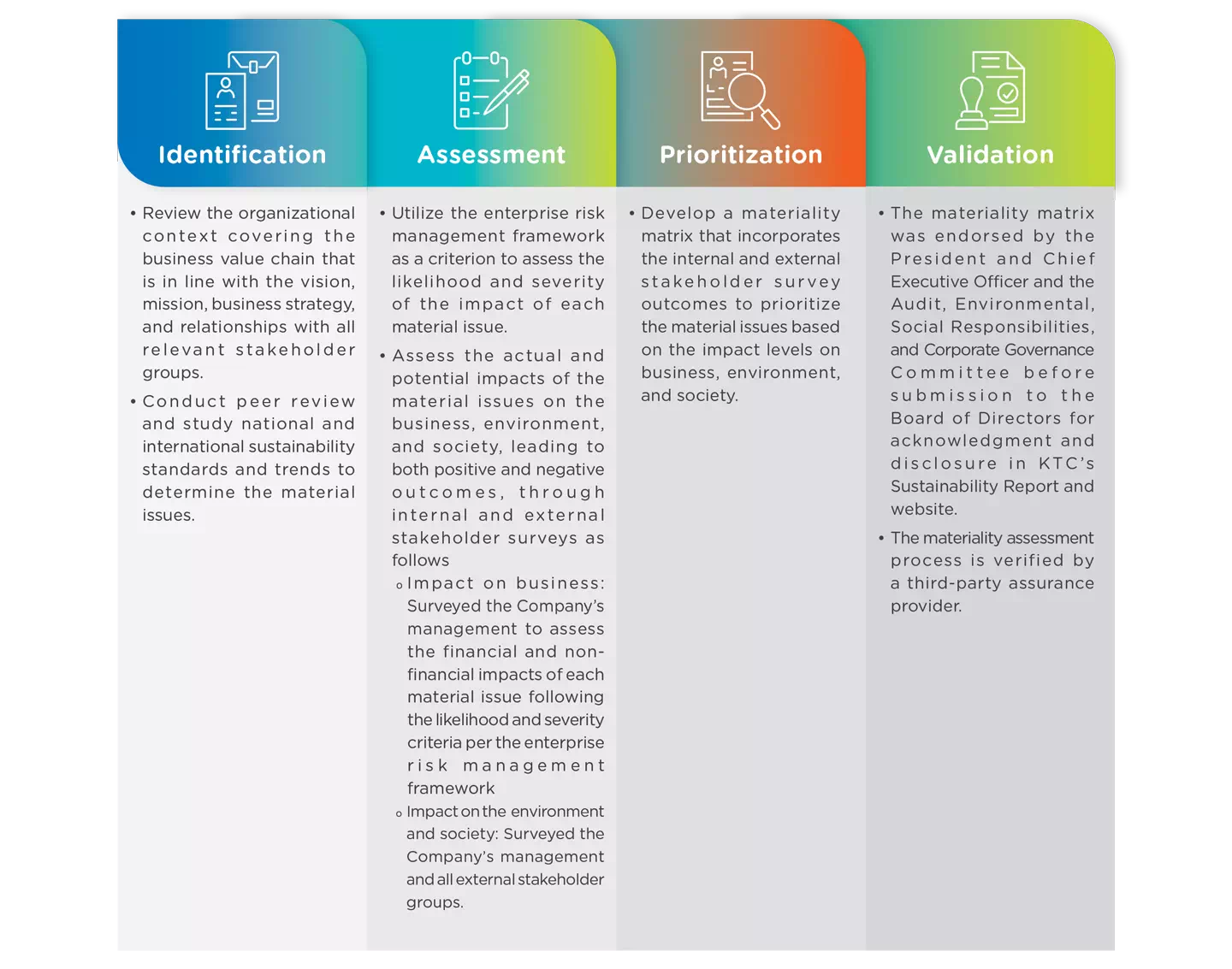
Materiality Issues
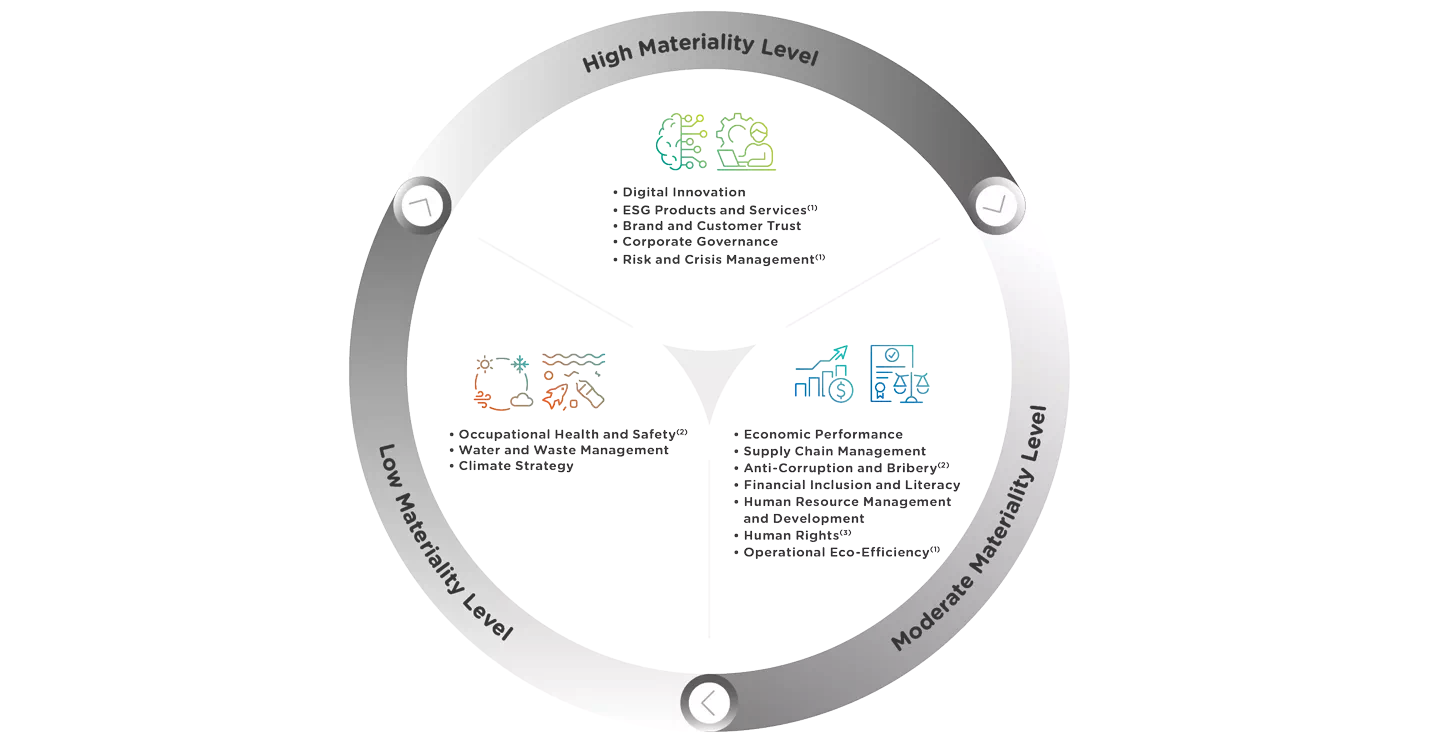
Remark
- (1) Issues increased by one materiality level compared to the materiality assessment 2023
- (2) Issues decreased by one materiality level compared to the materiality assessment 2023
- (3) Previously included under Human Resource Management and Development in the Materiality Assessment 2023, this issue has been designated as a standalone issue in the Materiality Assessment 2024.
Material Issues Prioritization
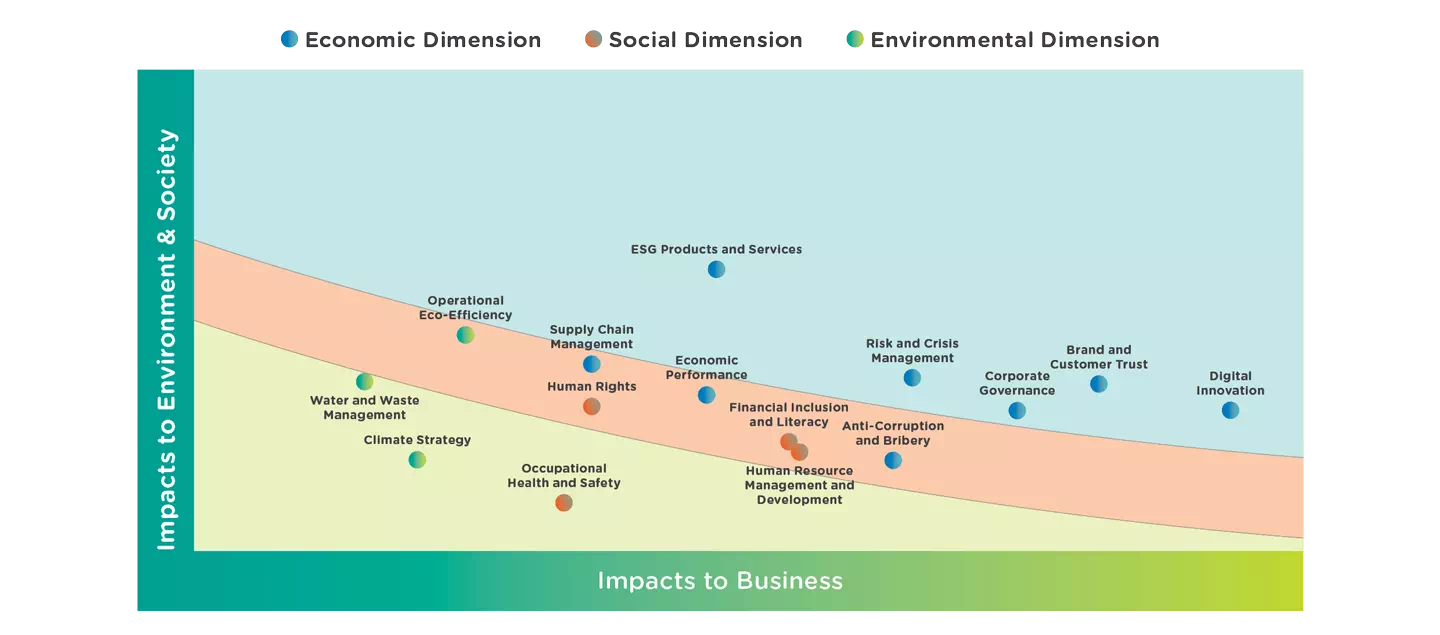
Sustainable Development Framework
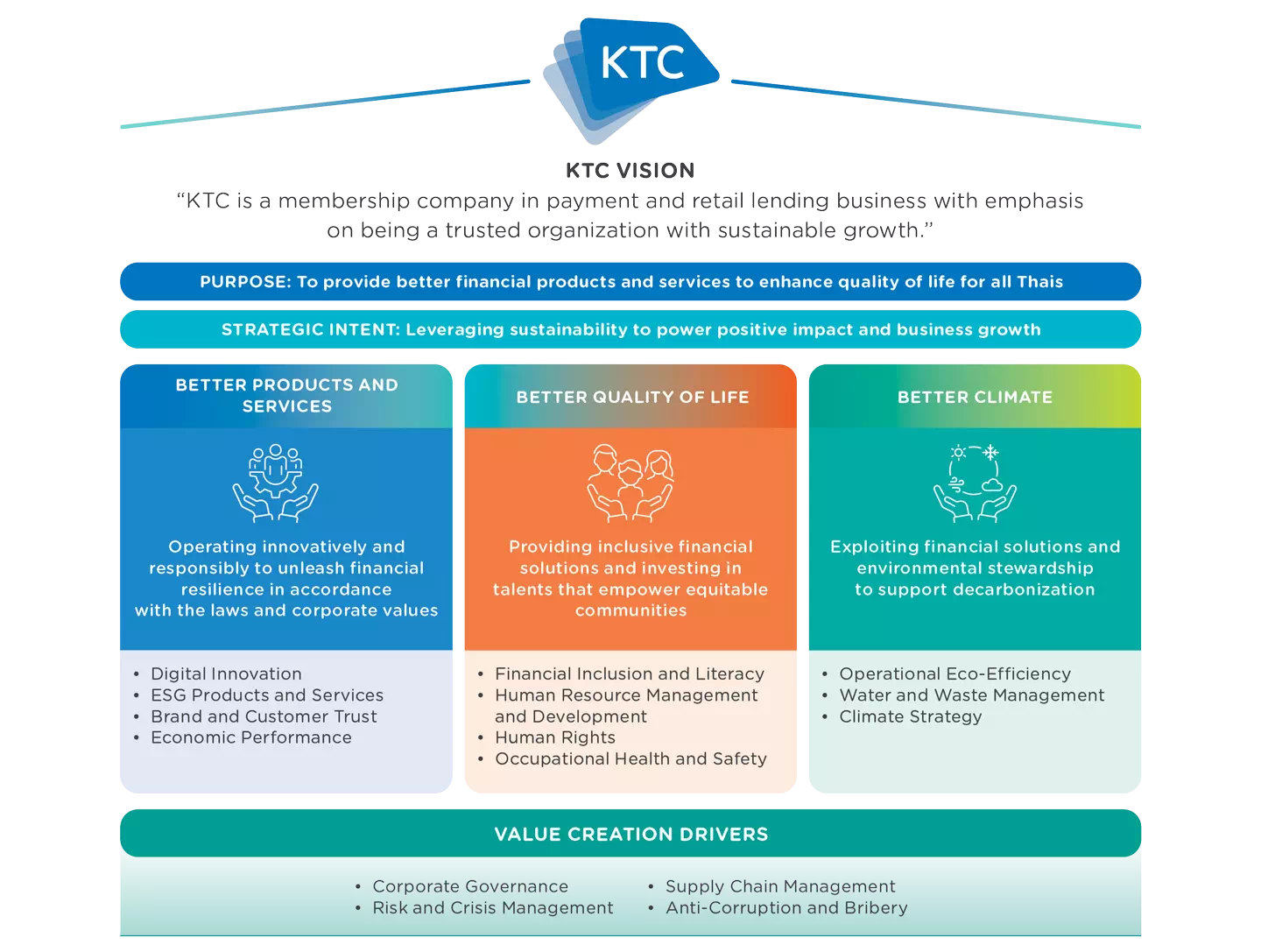



 Promotions
Promotions
 KTC U SHOP
KTC U SHOP




 Login
Login












